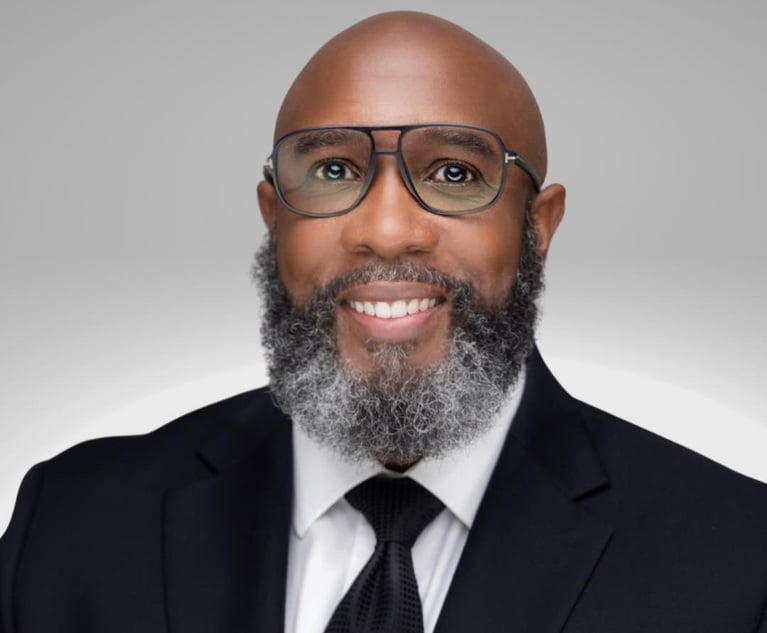'I was gone': Miami Lawyer Left a Strict Religious Group to Start a New Life
"I would have never guessed this would be my life story," said Eduardo Maura of Ayala Law, who spent eight years in a strict religious community in Peru before pursuing commercial litigation in the U.S.
August 23, 2019 at 02:50 PM
7 minute read
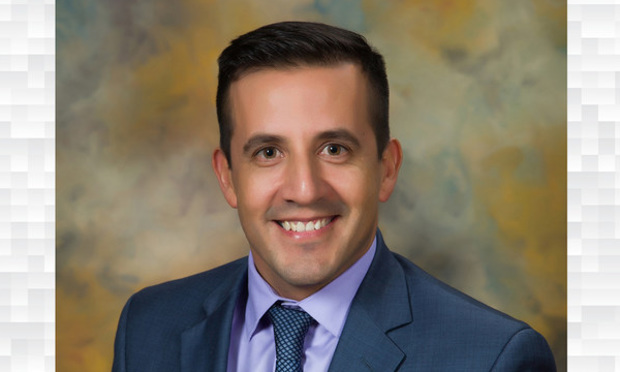 Eduardo Ayala Maura, Ayala Law. Courtesy photo.
Eduardo Ayala Maura, Ayala Law. Courtesy photo.
Eduardo A. Maura lived a celibate life in a religious community in Peru before he ever thought about starting Miami firm Ayala Law.
Recruited as a teen after high school, Maura became a "consecrated layperson" in a far-right Catholic group south of Lima, similar in some ways to a monastery, led by priests who prescribed a strict exercise and studying regime. The lifestyle was "intense," as Maura tells it, centering around the idea of being half monk, half soldier.
"In retrospect, I think that must have helped me later in life, in terms of the discipline that they built in me, even though I'm not a Catholic anymore and I'm not a religious person today," Maura said.
After eight years, Maura began dreaming of the family he wasn't supposed to have, and one day broke his vow by getting involved with his secretary. That was a sign, Maura says, that he was unhappy.
"I felt alone," he said. "And I felt like, 'I'm not about to live a double life. This is not for me.' "
It was tough breaking from the community, to whom the dichotomy of heaven and hell was very real, according to Maura.
"They have this idea like, 'This is your vocation and if you don't do that you're going to go to hell.' It sounds radical, but it is like that," Maura said. "They obviously couldn't kidnap me, but the amount of pushback for me not to leave was super strong. But I always had a very strong personality, too, and I made my decision. I was gone, in my mind."
Maura had quickly climbed the ranks. He ran a pastoral center and taught philosophy and logic at the community's university. But he'd made up his mind, and left for Lima without money, a job or a degree. After months of searching for a job in what was then a recession-struck city, Maura, then-25, was hired as a hotel bellboy.
"I went from that to being happy having a job carrying bags," Maura said. "I didn't care."
But when the position was canceled two days before his start date, Maura said his mother encouraged him to look for opportunities in the U.S. His mother had been suffering from cancer, but her outlook was good after chemotherapy, and Maura wanted to help support her.
New Opportunities
Maura moved to Boca Raton in 2002, where he stayed with a Peruvian friend he'd met on MSN Chat—back when the internet was an optional commodity that most people accessed through an internet cafe.
"It didn't turn out very well," Maura said.
It turned out the man was gay and had gotten the wrong idea about their friendship, according to Maura. When Maura moved out, his ex-roommate badmouthed him to his employers, Publix and Dunkin Donuts, and he was fired.
Maura later worked as a restaurant delivery driver, and was soon promoted to cook, then manager, partner and joint owner. But the restaurant became a victim of the 2007 recession, and Maura got a job scanning documents at a law firm.
"It was the most boring job I've ever had," he said.
But the job introduced Maura to legal work, and he realized, "I could do this myself."
Maura's philosophy professorship from Peru translated into college credits, providing a quick path to a bachelor's degree at Florida International University, where he paid for his studies with a locksmith job.
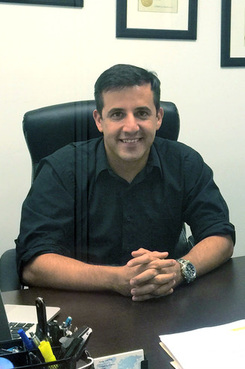 Eduardo A. Maura. Courtesy photo.
Eduardo A. Maura. Courtesy photo.Maura said he was used to living with scarcity, having grown up in a working-class family of five. So law school offered the promise of something he deemed crucial: financial security. After graduating in 2011, he joined Coral Gables firm Rivero Mestre, where he says he learned the foundations of high-quality commercial litigation. But without a full-time job offer, Maura moved on to Vernis & Bowling, where he said he soon felt like he didn't belong.
So he started a firm from his studio apartment on Le Jeune Road.
"I just bought a printer and I created a company," he said.
He began with immigration cases, with the help of law professor Juan Carlos Gomez, who leads FIU's immigration and human rights law clinic. Now, at Ayala Law in Brickell, Maura handles complex commercial cases, facing off against some of the largest firms in the world.
But he still works on immigration and even litigates against towing companies. In Gomez's view, that's because Maura never gives up on clients—even those who don't have the money or capacity to seek help. Gomez and Maura have worked on one man's immigration case for several years. Gomez says what Maura does for the client borders on social work.
"Even when it's almost hopeless, Eduardo follows up and finds a way to keep it going, to try to keep this man with his family," Gomez said.
'Why not?'
Maura's former supervisor at Rivero Mestre Catherine Grieve describes him as "fearless" and "unstoppable."
"When facing off against highly experienced adversaries or a mega-firm, Eduardo is excited for, not daunted by, the challenge and sees it as a tremendous opportunity to learn and grow," Grieve said.
Maura insists he's "not the brightest lawyer out there," but says he hopes to inspire young attorneys struggling to forge their own path, worried that they don't measure up or don't belong. His message: With discipline and a strong work ethic, they could compete with anyone.
"It's always, to me, been, why not? Why do I have to be what some former firm told me I should be?" Maura said. "You can play in the major leagues, in the most complex cases, in the best forums, in the best courts if you really have the passion and the work ethic."
Maura's expertise in Aristotelian logic has shaped his approach to litigation.
"Solid reasoning wins cases," he said. "If you're just reacting to every movement the other side is making, you're losing the case."
Now, Maura is gearing for a mass torts trial against a U.S. corporation over claims that its work in a Peruvian mining plant caused 1,200 children to contract lead poisoning. He's co-counsel with two Missouri attorneys, while the defense is flanked by 16 lawyers from Ivy league colleges.
 Maura playing tennis at 16. Courtesy photo.
Maura playing tennis at 16. Courtesy photo.In other litigation, Maura filed a putative class action lawsuit against owners of the Miami Mall of the Americas on behalf of more than 130 plaintiffs, who claim retail giants Costco and Home Depot received preferential treatment over their small businesses. A judge will rule on class certification in November.
When Maura's not working, he's exploring the world with fiancee and attorney Pamela Ferretjans—in small increments.
"We took a five-day trip to Thailand. We took a four-day trip to Dubai," he said. "We're crazy."
Maura is also a lifelong tennis player and launched the Ayala Open in July, a local tournament for local professional and amateur players.
"I would have never guessed this would be my life story," Maura said. "You can do wonders if you put in the work, focus and are passionate about it."
Eduardo A. Maura
Born: December 1976, Lima, Peru
Education: Florida International University College of Law, J.D., 2011; Florida International University, B.A. in Philosophy, 2008
Experience: Attorney and president, Ayala Law, 2013-present; Associate, Vernis & Bowling, 2012-2013; Associate, Rivero Mestre, 2011-2012
More profiles:
'I'm Not Going to Hide Who I am': Attorney John 'Jack' Lord Jr. Champions LGBTQ Rights
You've Been Served: How Marko Cerenko Went From Tennis Champ to High-Stakes Miami Litigator
How a Teenage Scrape With Cops Galvanized Jayne Weintraub's Career as Criminal Defense Lawyer
This content has been archived. It is available through our partners, LexisNexis® and Bloomberg Law.
To view this content, please continue to their sites.
Not a Lexis Subscriber?
Subscribe Now
Not a Bloomberg Law Subscriber?
Subscribe Now
NOT FOR REPRINT
© 2025 ALM Global, LLC, All Rights Reserved. Request academic re-use from www.copyright.com. All other uses, submit a request to [email protected]. For more information visit Asset & Logo Licensing.
You Might Like
View All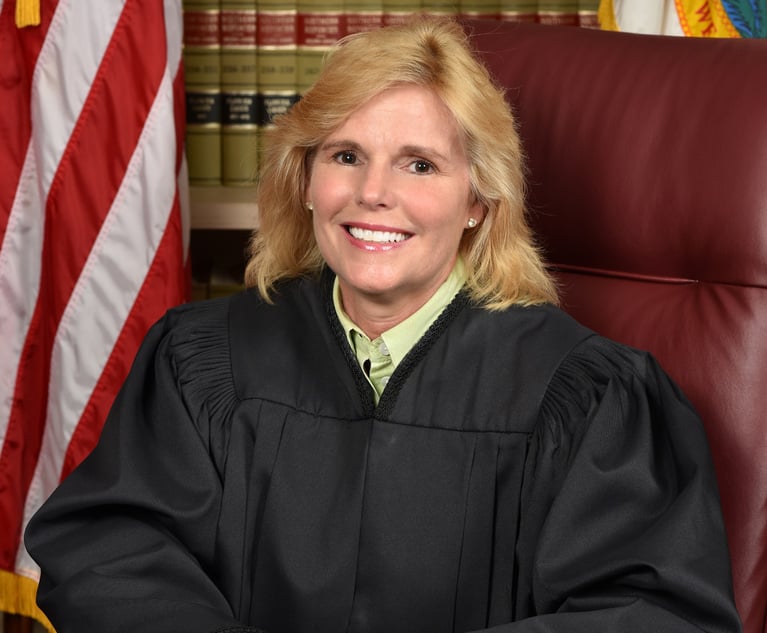
Carol-Lisa Phillips to Rise to Broward Chief Judge as Jack Tuter Weighs Next Move
4 minute read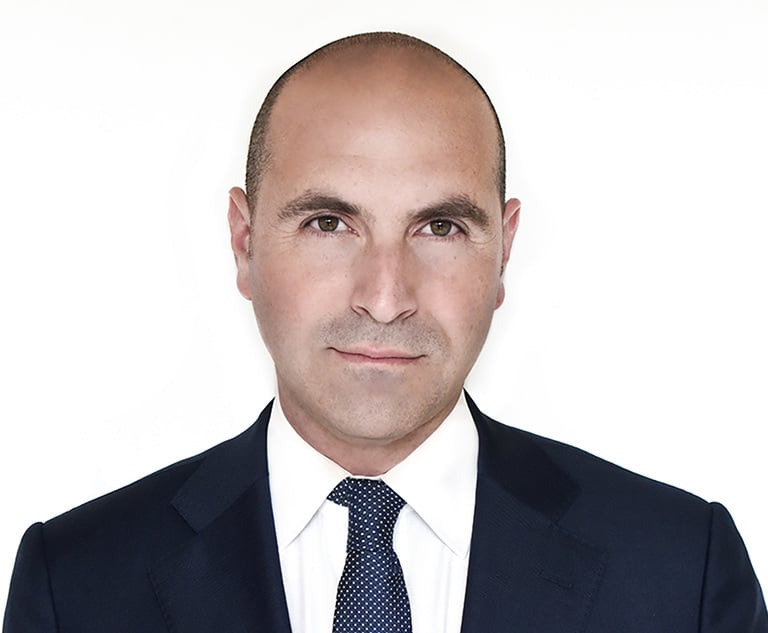
Growing Referral Network, Alternative Fees Have This Ex-Big Law’s Atty’s Bankruptcy Practice Soaring
5 minute read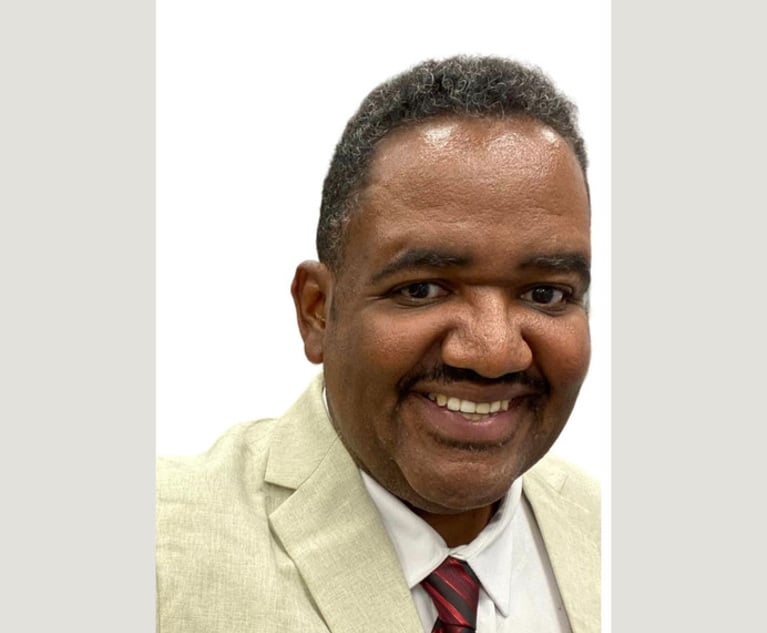
Against the Odds: Voters Elect Woody Clermont to the Broward Judicial Bench
4 minute readTrending Stories
- 1Thursday Newspaper
- 2Public Notices/Calendars
- 3Judicial Ethics Opinion 24-117
- 4Rejuvenation of a Sharp Employer Non-Compete Tool: Delaware Supreme Court Reinvigorates the Employee Choice Doctrine
- 5Mastering Litigation in New York’s Commercial Division Part V, Leave It to the Experts: Expert Discovery in the New York Commercial Division
Who Got The Work
J. Brugh Lower of Gibbons has entered an appearance for industrial equipment supplier Devco Corporation in a pending trademark infringement lawsuit. The suit, accusing the defendant of selling knock-off Graco products, was filed Dec. 18 in New Jersey District Court by Rivkin Radler on behalf of Graco Inc. and Graco Minnesota. The case, assigned to U.S. District Judge Zahid N. Quraishi, is 3:24-cv-11294, Graco Inc. et al v. Devco Corporation.
Who Got The Work
Rebecca Maller-Stein and Kent A. Yalowitz of Arnold & Porter Kaye Scholer have entered their appearances for Hanaco Venture Capital and its executives, Lior Prosor and David Frankel, in a pending securities lawsuit. The action, filed on Dec. 24 in New York Southern District Court by Zell, Aron & Co. on behalf of Goldeneye Advisors, accuses the defendants of negligently and fraudulently managing the plaintiff's $1 million investment. The case, assigned to U.S. District Judge Vernon S. Broderick, is 1:24-cv-09918, Goldeneye Advisors, LLC v. Hanaco Venture Capital, Ltd. et al.
Who Got The Work
Attorneys from A&O Shearman has stepped in as defense counsel for Toronto-Dominion Bank and other defendants in a pending securities class action. The suit, filed Dec. 11 in New York Southern District Court by Bleichmar Fonti & Auld, accuses the defendants of concealing the bank's 'pervasive' deficiencies in regards to its compliance with the Bank Secrecy Act and the quality of its anti-money laundering controls. The case, assigned to U.S. District Judge Arun Subramanian, is 1:24-cv-09445, Gonzalez v. The Toronto-Dominion Bank et al.
Who Got The Work
Crown Castle International, a Pennsylvania company providing shared communications infrastructure, has turned to Luke D. Wolf of Gordon Rees Scully Mansukhani to fend off a pending breach-of-contract lawsuit. The court action, filed Nov. 25 in Michigan Eastern District Court by Hooper Hathaway PC on behalf of The Town Residences LLC, accuses Crown Castle of failing to transfer approximately $30,000 in utility payments from T-Mobile in breach of a roof-top lease and assignment agreement. The case, assigned to U.S. District Judge Susan K. Declercq, is 2:24-cv-13131, The Town Residences LLC v. T-Mobile US, Inc. et al.
Who Got The Work
Wilfred P. Coronato and Daniel M. Schwartz of McCarter & English have stepped in as defense counsel to Electrolux Home Products Inc. in a pending product liability lawsuit. The court action, filed Nov. 26 in New York Eastern District Court by Poulos Lopiccolo PC and Nagel Rice LLP on behalf of David Stern, alleges that the defendant's refrigerators’ drawers and shelving repeatedly break and fall apart within months after purchase. The case, assigned to U.S. District Judge Joan M. Azrack, is 2:24-cv-08204, Stern v. Electrolux Home Products, Inc.
Featured Firms
Law Offices of Gary Martin Hays & Associates, P.C.
(470) 294-1674
Law Offices of Mark E. Salomone
(857) 444-6468
Smith & Hassler
(713) 739-1250





